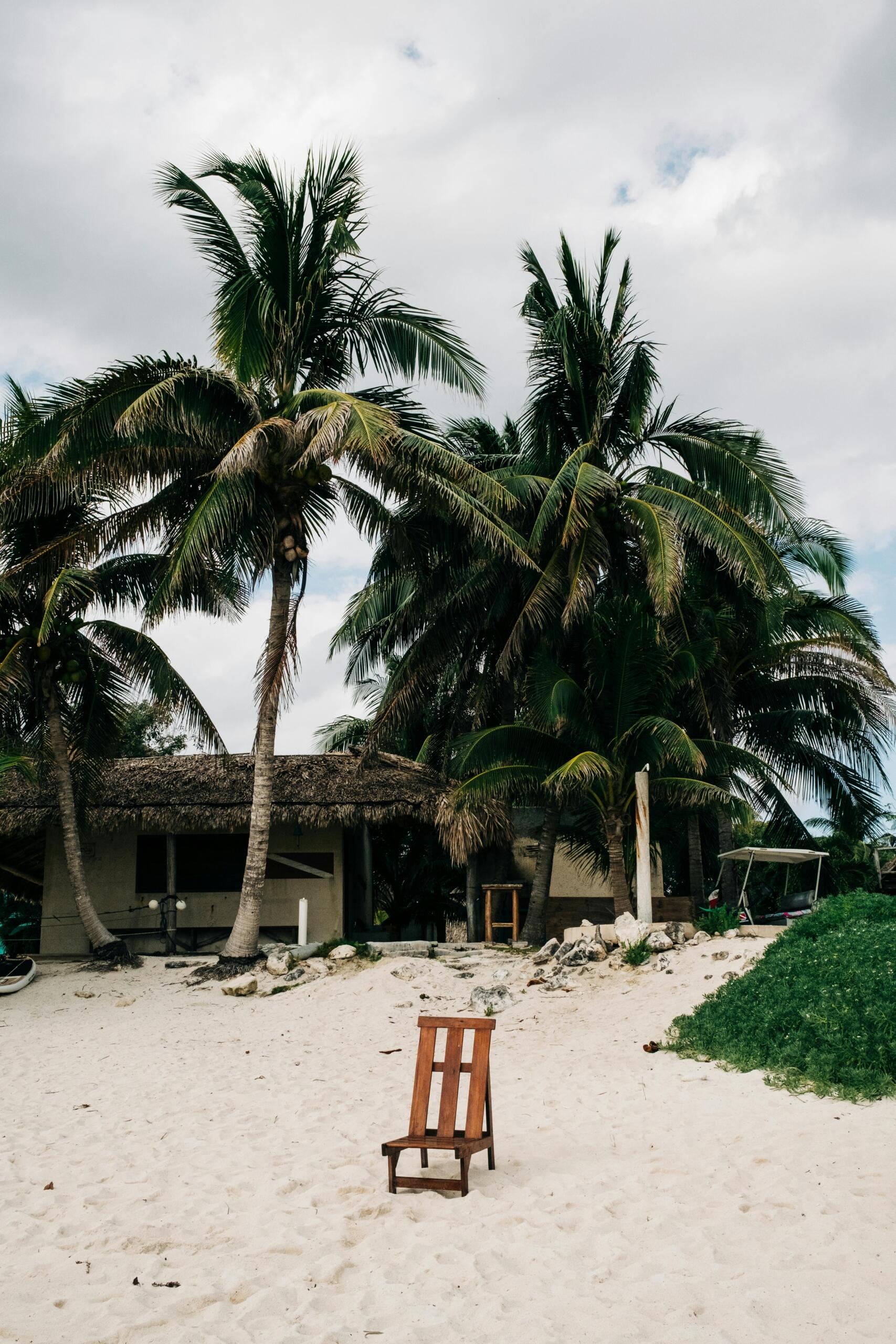While Praise Song for My Mother is by no means guaranteed to appear on the GCSE English exam papers this year, it’s definitely a poem that’s favoured by teachers and examiners alike. It’s a poem that’s packed with literary devices, and there’s so much to unwrap with each line, making it a textbook poem for students studying poetry at GCSE level. This makes it that bit more likely for it to feature on the exam paper, so we’ve decided to put together an in-depth analysis of the poem in order to provide you with all the ammunition you need to get a top grade in your poetry essays inside the exam hall.
| Category | Main Comment | Interpretation | Effect |
|---|---|---|---|
| Context | Grace Nichols is a Guyanese-British poet whose work often reflects her Caribbean heritage and themes of identity, family, and memory. | The poem draws on personal memories of the poet’s mother and Caribbean culture. | Adds warmth and intimacy; conveys a deep, personal celebration of motherhood. |
| Form and Structure | The poem has no fixed rhyme scheme and uses free verse with short lines and stanzas; it repeats the structure “You were…” to build rhythm and memory. | The repetition and free form reflect the natural, flowing memories of a child praising their mother. | Mimics oral storytelling traditions; enhances emotional rhythm and personal tone. |
| Themes | Parental love, memory, identity, loss, heritage, admiration. | Explores the sustaining and nurturing role of the mother; the legacy she leaves behind. | Universal appeal for readers thinking about their own family relationships and cultural roots. |
| Language | Rich in natural imagery and metaphor: “deep as a river,” “sunrise to me,” “the fishes red gill.” | Uses elements from nature to symbolise nourishment, strength, and emotional connection. | Elevates the mother to a life-giving, elemental force; creates vivid, sensory imagery. |
| Perspective | First-person address, possibly from daughter to mother; the voice is reverent and intimate, full of admiration and reflection. | Shows the poet's personal bond and admiration; suggests the mother has passed away or is being remembered. | Strengthens the emotional depth; feels like a personal tribute shared with the reader. |
| Key Quotes | “You were water to me”; “You were sunrise to me”; “the fishes red gill”; “the flame tree’s spread”; “the crab’s leg/the fried plantain smell” | Each quote uses metaphor or sensory detail to highlight different aspects of the mother’s care and presence. | Reinforces the idea that the mother was ever-present, essential, and deeply cherished. |

Context of Praise Song for my Mother
Let us kickstart this analysis of the poem by leaving you with this golden nugget of advice. No matter what sort of question ends up appearing in the poem, you can always weave in a few points on the context of the poem before getting into the meat of your answer. So, even if it’s not specifically asked for in the question, Context is something that can fuel all of your answers. With a deeper understanding of the poem’s background and context, you’ll also be able to formulate stronger arguments when analysing the poem through another lens, so you’re going to be killing two birds with one stone by paying adequate attention to the poem’s context within your GCSE revision plan.

The poet, Grace Nichols, was born in Guyana in 1950 and moved to the UK in 1977. If you’ve had time to scan over any of her poetry, you’ll notice that almost all of her work is influenced by her Caribbean background and often addresses themes such as identity, culture, memory, and displacement. It’s also important to note that the poem at hand draws heavily from this cultural background and takes inspiration from the African oral tradition of praise songs, a poetic form used to honour individuals through rhythmic, often repetitive lines.
Another major point you’ll want to make sure to jot down in your notebook is that it came after the death of her mother, serving as a celebration of her life and the lasting influence she had. You may have even picked up during your initial readings of the poem how there is a constant use of past tense (“You were…”) throughout, and it’s very much intentional, suggesting the mother has passed away, and the speaker is looking back with love and reverence.
One of the reasons the poem is held so dearly in the GCSE English curriculum is its employment of universal emotions with vivid sensory detail rooted in Caribbean imagery, creating a deeply personal yet relatable poem. The poem not only honours her mother but also offers insights into maternal bonds, cultural identity, and the process of remembering, all of which will make for strong points to include in your poetry essays. A similar bond of parenthood is explored in another of the GCSE poems you may be asked to analyse, Nettles by Vernon Scannell.
Praise Song for my Mother Analysis: Form and Structure
The next angle that we’re going to look at in this analysis of the poem form is its form and structure. Similar to the context, this is something that you can work in a few points about into just about any essay you’re writing, as a means of strengthening your arguments and demonstrating your knowledge of the poem to the examiner. In addition to adding applicable points to your arsenal, this can even surface as a stand-alone question in the exam.
The poem is written in free verse, meaning it does not follow a strict rhyme or meter. Now, knowing this is one thing, but when it comes to GCSE English, examiners are really looking to see if students can understand what the poet is accomplishing through the use of their techniques, backing up their points with reference to the text. So, why Nichols decides to employ free verse is it allows her to focus on the flow of memory and emotion without being restricted.
The poem has five brief stanzas of uneven length, the first three regular, the fourth extended, and the fifth very brief. That final verse has just one line and serves more as a message, and a triumphant rallying call that her mother passed on, empowering in its very nature: "Go to your wide futures, you said".

Right from your very first readings of the poem, you’ll also have noticed how most stanzas begin with the phrase “You were”.
This use of anaphora establishes rhythm and reinforces the speaker’s act of reflection.
The regularity of this phrase is almost song-like, much like those you’ve got saved in your Spotify or Apple Music playlists, echoing the oral traditions of storytelling and praise.
If you really want to impress your examiner and earn a top grade in your essay on this poem, then make sure to comment on one of the most emphatic aspects of the poem’s structure. In the final stanza, the pattern is finally broken: “Go to your wide futures, you said.” This shift to direct speech marks a turning point. It shows the mother offering her final piece of advice, encouraging independence and forward movement. Mentioning how the structure mimics the journey from dependence to independence, from memory to action, is something that will surely help your analysis stand out from that of other students.

Themes in a Praise Song for my Mother Grace Nichols
👩👦 Maternal Love
🧬 Cultural Identity
🙋♀️ Growth and Independence
There are a number of themes that can be pointed out in your analysis. These can go a long way to show that you have understood the poem and its meanings. Throughout your coursework, the ability to point out themes and imagery, such as the theme of the sea within this poem, and also within Kamikaze by Beatrice Garland.
Maternal Love and Admiration
While there are a number of themes that you can choose to centre your analysis around should a question appear on the topic, it’s difficult to avoid the prevalence of a daughter’s love for her mother at the centrepoint of this poem.
Each metaphor highlights a different quality: strength, warmth, protection, and guidance. The theme is also universal, allowing readers to connect through their own relationships with parents or caregivers. While it may not have been immedicatly apparent when studying the poem initially, it actually doesn’t idealise the mother. Instead, the poet celebrates her in a realistic light that really resonates with all who read it.
Cultural Identity
Another major theme that features in the poem is cultural identity, in fact, so much so that its omission could even result in your essay feeling like it's missing something. Earlier, when discussing the context of the poem, we touched on how Caribbean heritage is integrated throughout the poem.
Well, this is done through an effective mix of sensory imagery that evokes the sounds, smells, and sights of the Caribbean.
Going back over the poem with this in mind will help you surface all sorts of references that might have been apparent at first glance.
Everything from food (“fried plantain”), natural elements (“flame tree’s spread”), and local wildlife (“crab’s leg”) are woven into the story conjured by Nichols.

Growth and Independence
We mentioned how the final line of the poem accomplishes so much in the poem. Well, part of this is to do with the theme of growth and independence. The poet says “Go to your wide futures, you said,” showing us how the mother’s role was not just as a nurturer, but it actually extended as a guide into adulthood. Now, when it comes to crafting your very own essay on themes, if you opt to tackle growth and independence, you could add how the plural “futures” suggests possibility and freedom. Mentioning how this line, delivered as direct speech, grants the mother a voice which continues even after death, will definitely put your essay right up there in a top grade bracket.
Form and Structure of The Poem
"Praise Song for My Mother" is a free verse poem, meaning it doesn’t follow a regular rhyme scheme or meter. This lack of formal constraint allows the speaker to express emotions with natural rhythm and fluidity, much like the flow of memory or speech. The structure mirrors the intimacy and spontaneity of personal recollection.
The poem is composed of four stanzas, with the first three celebrating different aspects of the mother through repeated comparisons (“You were…”) and rich metaphors. Each stanza ends with the word “replenishing,” creating a sense of rhythm and emotional continuity. The final stanza, shorter and distinct in tone, marks a transition from dependence to independence, capturing the moment of departure with the command “Go to your wide futures, you said.”
This structural shift echoes the central theme of growth and legacy, showing how the nurturing presence of the mother carries forward into the speaker’s life journey.
The Use of Language in Praise for Song of My Mother
Language is something that GCSE students across the country hope to see when they open up their English exam papers inside the exam hall. This is because the poem is very much a textbook example of many of the linguistic techniques and features that students cover over the course of their poetry education at school.
Grace Nichols uses vivid and sensual language to convey the depth of her admiration and affection for her mother. The poem is rich in imagery, drawing on natural elements to describe nurturing and strength. It also features enjambment, alliteration, and the characteristic looseness of free verse to create a flowing, lyrical quality.
The poet's use of language in this poem is rich and evocative, working wonders when it comes to bringing emotional resonance and cultural specificity to her tribute. Throughout the poem, you might also notice how she employs natural imagery and metaphor to describe her mother in terms that are elemental and enduring.
The Unique Use of Metaphors
Phrases such as “You were water to me” and “You were sunrise to me” liken her mother to forces of nature—vital, life-sustaining, and inescapable. These metaphors not only emphasise the depth of the speaker’s admiration but also root the mother figure in the physical and sensory world.
The poem is very much a collection of metaphors, each depicting the subject from a different point of view. ‘Water’ is the easiest place to start – life-giving, flowing, liquid, and expressive. The fact that water is essential to life means this is a deliberate simile used by the writer to explain the reliance on a mother's love. It prompts the poet to describe her mother with three words, which help to continue the metaphor ‘deep and bold and fathoming’. To call a person ‘deep’ may now have the sense of complexity or seriousness, but here it summons up deep-sea water, ‘bold’ the bravery of waves. ‘Fathoming’ as a term is slightly ambiguous, but it also helps to continue the theme of the deep sea within the language.

The way the poet stretches the sense of this word is itself repeated. ‘Mantling’ must be an action related to a ‘mantle’ or cloak, but how? Did the mother wrap herself around her daughter in protection? Did she clothe her daughter with her own resources, her own wealth, her own skills? Nichols is very ambiguous with her language here again. The fact that this is addressed to her mother means that perhaps we do not need to know what is meant, exactly.
To be ‘rise’ is another of these tests. The poet’s mother was, we are told, the rise that brought as much to her daughter as the sun rising in the morning, yet the exact manner of what that gift was and how it was brought is hidden from us, both by the inability of language to really express it and by the shield of privacy that the poet holds. The language is unclear but favourable. To describe someone as "warm" certainly suggests that there is a great deal of affection there.
Again, we come to the final line, and its brevity gives the impact and punch that the poet intended. It is a beautiful and impactful sign-off: "Go to your wide futures" is an empowering and inspirational phrase. The choice to pluralise "future" and instead include "futures" adds even more intrigue. Of course, a person can build more than one future for themselves, but perhaps this is a reference to the brothers and sisters to whom the mother figure was also addressed.
Use of Poetic Devices
| Device | Example from the Poem | Effect |
|---|---|---|
| Imagery | “moon’s eye to me”, “water to me” | Evokes the mother’s nurturing, ever-present nature using natural symbols. |
| Alliteration | “mantling… mystery” | Adds musicality and emphasis to the descriptions. |
| Enjambment | Lines continue without punctuation | Creates a flowing rhythm and mirrors the continuity of memory and love. |
| Free Verse | Absence of rhyme or regular meter | Allows emotional freedom and conversational tone. |
| Repetition | “You were…” at the beginning of lines | Reinforces admiration and the enduring presence of the mother. |
| Metaphor | “deep… fathoming” | Suggests emotional depth and wisdom in the mother’s love. |
| Imperative Voice | “Go to your wide futures” | Marks a turning point, showing empowerment and release. |
Revising the Poem for your Exam
Hopefully, as you put this article down, you find yourself with a better sense of how you might conduct your own analysis across each of the angles GCSE students are typically invited to inside the poetry section of the paper. This article should serve as a cheat sheet to inform your revision as you prepare for success in the exam.
However, you might have felt about this open prior to reading; hopefully, you now view it as an opportunity to show off all of that poetry knowledge you’ve built up inside and outside of the classroom. We’ve seen just how packed it is with all sorts of literary devices, so you definitely won’t be short of points to argue in any of the essays that might feature on the poem. The poem’s blend of personal and cultural expression makes it a rewarding piece to study and a rich example of modern poetry; it’s no wonder GCSE teachers and students hold it so dearly.
Summarise with AI:























This poem is written in free verse . Why does this seem appropriate for this poem
Hi Vensi,
The use of free verse in Praise Song for My Mother is appropriate because it mirrors the natural rhythms of speech, creating a personal and intimate tone that suits the poem’s tribute to the poet’s mother. Without the constraints of rhyme or strict structure, Grace Nichols is free to express her emotions and memories fluidly, using vivid imagery and repetition to evoke a lyrical, song-like quality. The form also reflects the influence of Caribbean oral traditions, allowing the poem to feel both culturally authentic and emotionally heartfelt.